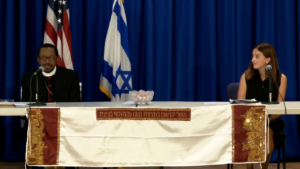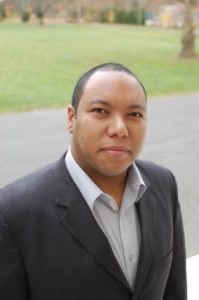
As Israelis and Palestinians alike emerge from the rubble of 11 days of fighting that killed 200 and sparked a global wave of antisemitism, the stakes of the conflict are heightened once more, at home and abroad.
The last few weeks have been a test, according to some American-Jewish groups. Political and educational groups in Philadelphia, like the Jewish Community Relations Council, Jews in ALL Hues and the American Jewish Committee work in formal and informal coalitions with a variety of non-Jewish groups. They all partner with organizations that may not be explicitly Zionist or anti-Zionist, but whose work concerns the questions at play in the conflict, questions about human rights, politics, social justice and more.
Representatives from those organizations say that, at some level, the most recent spate of bombing is a stress test for the bonds that their organizations have formed with their peers, bonds that have, fortunately, held fast. But as reports of antisemitic incidents rise, people like JCRC Director Laura Frank are wondering what the political environment for Zionism might look like in Philadelphia in the years to come.
“The anti-Zionism and BDS movements are directly affecting us, and it’s something that we have built coalitions around,” Frank said. “In Philly, tensions have definitely risen.”

JCRC pursues a number of political and educational goals in the city, which frequently bring them into contact with non-Jewish political organizations. Priorities include “Israel and World Jewry Affairs,” “Racial Justice Initiatives” and “Interfaith Affairs,” and their work often requires lobbying on a state and local level.
When former president of the Philadelphia NAACP Rodney Muhammad posted an antisemitic meme to his public Facebook page last July, Frank convened a roundtable discussion with local Black church leaders to address antisemitism, racism and other issues related to bigotry. In January, JCRC hosted a virtual discussion with U.S. Reps. Chrissy Houlahan, Mary Gay Scanlon, Susan Wild and Madeline Dean; the next month, they took part in a “Virtual Mission to Washington” to advocate for Israel and laws that fight antisemitism, lobbying members of Congress alongside Jewish organizations from across the country.
Since the most recent fighting between Israel and Hamas, Frank said, antisemitic and anti-Zionist activity in Philadelphia was as pronounced as its been in her tenure at JCRC.
“This is happening here in Philly, it’s happening on college campuses, it’s happening everywhere,” she explained. But when it came to the organization’s own partners, what Frank and JCRC found was, almost universally, strong support during a difficult period. When there were questions about what was going on — about war, Hamas, colonialism, apartheid, antisemitism — they were asked respectfully, in good faith.
“There are people that are questioning, trying to understand, and we’re just really grateful and proud that they’re turning to us for that guidance, and they’re listening,” Frank said.
A similar dynamic was at play for AJC Philadelphia/Southern New Jersey. The fighting in Gaza and the clashes in the streets of Israel reverberated throughout the world in the form of heated political debate and, at times, criticism of Israel gave way to antisemitic sentiment and attacks.
“It’s been a totally emotionally fraught time,” said Marcia Bronstein, regional director
of AJC.
On college campuses, where AJC often works in Philadelphia, it’s been “scary,” Bronstein said, as popular opinion turns against Israel. The organization has noted an increase in statements made in support of the boycott, divestment and sanctions movement, and increased categorization of Israelis and Jews at large as “white and privileged.” It’s frustrating to Bronstein, who has worked hard to build partnerships and coalitions with organizations of varied political stripes. Those relationships have been stressed by difficult conversations, Bronstein said, but have held because of trust built up over years. Still, she is concerned about the future.
“People just don’t get it,” Bronstein said. “They sign up for the underdog, or perceived underdog, or they put it in the lens of colonialism, you know, white people against Black and brown people. If anyone says that about Israel, they just don’t get it, it’s clear that they don’t get it.”
Jared Jackson and the leadership of Jews in ALL Hues have faced a different sort of challenge.
Jews in ALL Hues, an educational advocacy group that also offers consulting, is a younger, smaller organization than AJC or JCRC. Jackson, founder and executive director of the group, is a native speaker when it comes to the language of contemporary social justice organizing and education, while larger legacy organizations are trying to pick it up later in life. Their partners are more likely to be young and on the left, where criticism of Israel is a more common feature than it is among the organizations that partner with AJC or JCRC.
However, Jackson said, he hasn’t gotten many questions about Israel or Zionism during the most recent conflagration, and the strength of Jews in ALL Hues’ relationships are the reason why.
“Coming from clients, coming from organizational partners, there’s that built-in understanding that we have such a diversity of opinion and diversity of experience that it really isn’t the place to bring that,” he said, “because if you want to connect with people and people inside of our network, it also means meeting them as a human, not as a political pawn.”
[email protected]; 215-832-0740






